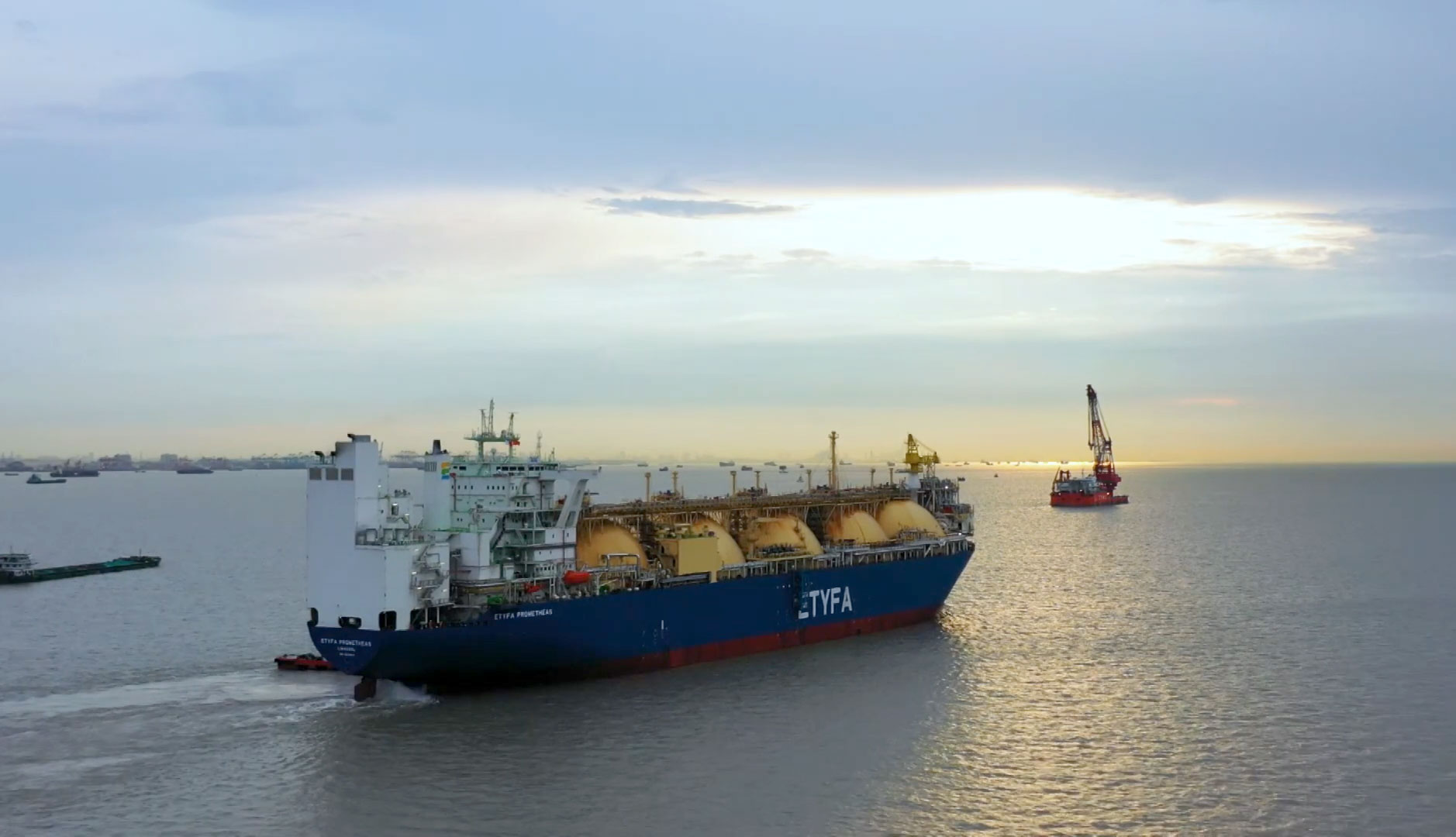The construction of the liquified natural gas terminal at Vasiliko, Limassol, has been pushed back until the end of July 2024, confirmed Energy Minister George Papanastasiou.
However, the minister argued that the development is a positive milestone for the project, as it offers a clear and definite timeframe for the first time.
In a telephone interview with the Financial Mirror, Energy Minister George Papanastasiou confirmed the Chinese-led consortium awarded the contract for the LNG terminal has unofficially filed a new timetable, promising to deliver the project by July 2024.
China Petroleum Pipeline Engineering Co (CPC) presented its latest work timetable to Cypriot officials three weeks ago.
It is the fourth time the Chinese-led consortium has pushed back the construction date. Initially, there were hopes of it being ready by early 2022.
It was back in December 2019 when Cyprus signed the contract with the consortium.
Since then, the contractor has submitted four delivery timetables for September 2022, July 2023, and October 2023.
The Chinese now promise to deliver the project by next July, extending the previous deadline of October by another ten months.
Asked if he was concerned about the new delay, Papanastasiou said: “On the contrary, this is the first time we have a realistically clear horizon regarding the construction of the LNG terminal, which more than pleases us”.
He revealed the LNG floating storage and regasification unit (FSRU) would be delivered by the end of September and temporarily anchored in Cyprus waters until work on the jetty is completed.
The ship turned FSRU, ETYFA Prometheas, will soon receive its seaworthiness certificate from Lloyd’s Register, clearing it to sail.
ETYFA is the island’s Natural Gas Infrastructure Company under the umbrella of the Cyprus Natural Gas Public Company (DEFA).
The ship will have a dual-class, as an FSRU and an LNG Carrier capable of international trading.
Chokepoint
“The chokepoint for the project, at the moment, is not the ship but rather the jetty where the ship will be moored,” said the minister.
Acknowledging that work on the jetty had fallen behind, Papanastasiou said this part of the project would soon be ready.
“If one pays a visit to the construction site, they will see that works have moved along significantly in recent months”.
Papanastasiou said the shipment carrying natural gas to the island for energy production is also expected to be received in 2024.
The cargo is earmarked for the Electricity Authority of Cyprus.
“With the introduction of LNG-produced electricity, consumers will finally be able to breathe, as their electricity bills will start to deflate,” said the minister.
Papanastasiou was referring to taxpayers having to pay massive amounts to cover fines paid by the EAC for overextending the limits of CO2 emissions set by Brussels.
The state Electricity Authority of Cyprus (EAC) said Cypriot consumers will have to pay €300 mln in 2023, 21% more than last year, for purchasing EU greenhouse gas emission allowances.
The EAC paid €248 mln last year. The penalty for greenhouse gas emissions is rolled down to consumers.
Bills received at the end of 2022, compared to the previous year, were 17% higher and 60% higher than those received in 2019.
In February, the government approved the terminal contractor’s request for a further increase in the price by €25 mln due to the rise in the prices of materials.
DEFA has said that Brussels warned the authority that Cyprus is on the verge of losing another €10 mln in funding from the EU.
It said that between €21-€35 mln has already been lost due to delays in awarding a tender for the arrival of natural gas.
Approximately €7 mln out of the calculated €23 mln that Cyprus pays monthly for carbon emissions relates to the non-arrival of natural gas.










